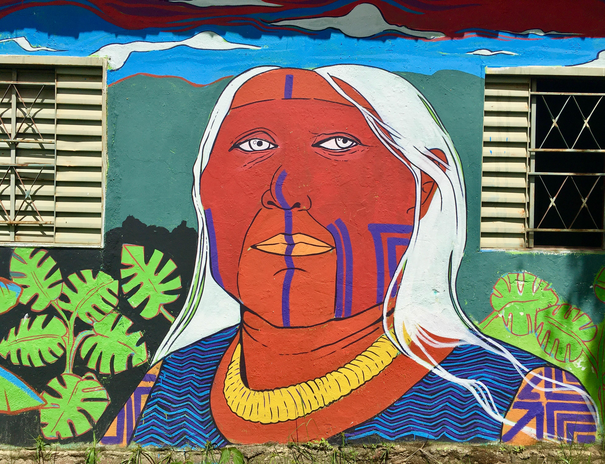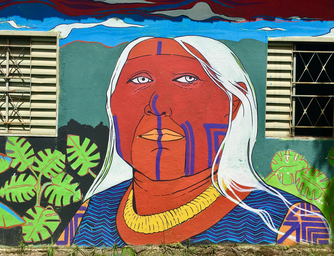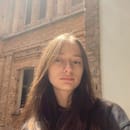The activist Sônia Guajajara, the first indigenous federal deputy elected by the state of São Paulo, also became the first to occupy a ministry. Chosen by President Luiz Inácio Lula da Silva (PT), Sônia is the new Minister of Indigenous Peoples.
Thinking about it, how about getting to know a little more about who this big name of national activism is and her journey?
Who is Sônia Guajajara?
The activist is part of the Guajajara/Tentehar people, who inhabit the forests of the Araribóia Indigenous Land, in the state of Maranhão. Her study was encouraged thanks to the help she received from Funai (National Indian Foundation), at the age of fifteen, to be able to attend high school in Minas Gerais.
Then, she graduated in Letters and Nursing from the Universidade Estadual do Maranhão (UEMA). Some years later, in 2005, she received a postgraduate degree in Special Education at the same university.
Last year, Time Magazine recognized her as one of the 100 most influential people in the world, by her entire history of struggle for indigenous peoples and the environment. In addition, Sônia is still the mother of three children and the daughter of illiterate parents.
Today, as a candidate elected by the PSOL (Socialism and Freedom Party), her main proposal is to give voice to native peoples, historically so oppressed within the Brazilian political debate. In addition, she also raises the banners of defense of the Amazon and the Atlantic Forest, the rights of minorities, respect for diversity and the reconstruction of Brazilian democracy.
This year with the return of the Lula government, Sônia Guajajara took over as Minister of Indigenous Peoples. In office, one of her main priorities is the demarcation of indigenous lands.
What is the trajectory of the indigenous activist?
Despite her enviable resume, it was in political activism that she found her true vocation. In 2003, she was elected General Coordinator of COAPIMA (Coordination of Organizations and Articulations of the Indigenous Peoples of Maranhão), gaining greater visibility in the defense of the cause.
In 2008, she participated in the UN Permanent Forum on Indigenous Issues in New York. Since then, Sônia has taken complaints to the World Climate Conferences (COP), to the European Parliament and to other international bodies. In all, the activist traveled to more than thirty countries.
With established recognition, in 2009, Sônia joined the Coordination of Indigenous Organizations of the Brazilian Amazon (COIAB) as vice-coordinator, where she worked for four years. From there she was elected executive coordinator of APIB (Articulation of Indigenous Peoples for the Amazon), where she began her work in the indigenous movement at the national level.
This wide visibility led the activist to the stage of the Rock in Rio festival, in 2017, with the invitation of singer Alicia Keys, to protest against the decree of then-president Michel Temer that tried to put an end to RENCA (Reserva Nacional do Cobre and its associates).
Entering political life for good, in 2018, she received an invitation from PSOL (Partido Socialismo e Liberdade) to compose the ticket for the presidential election as vice president alongside Guilherme Boulos – current federal deputy of São Paulo. Thus Guajajara was the first indigenous woman to run on a presidential ticket in Brazil.
With the advance of the Covid-19 pandemic, she led strategies for the APIB, carrying out emergency plans, calling national attention to the dismantling of indigenous rights, in addition to many other resistance initiatives during the period.
In the October 2022 elections, Sônia Guajajara had an expressive vote, with more than 150 thousand valid votes and was elected as federal deputy for São Paulo. In November of the same year, the activist was present at the COP-27 (UN Climate Conference) in Egypt and demanded the creation of the Ministry of Indigenous Peoples and greater participation of indigenous peoples in the government.
——————————-
The article above was edited by Giulia Howard.
Liked this type of content? Check Her Campus Cásper Líbero for more!



